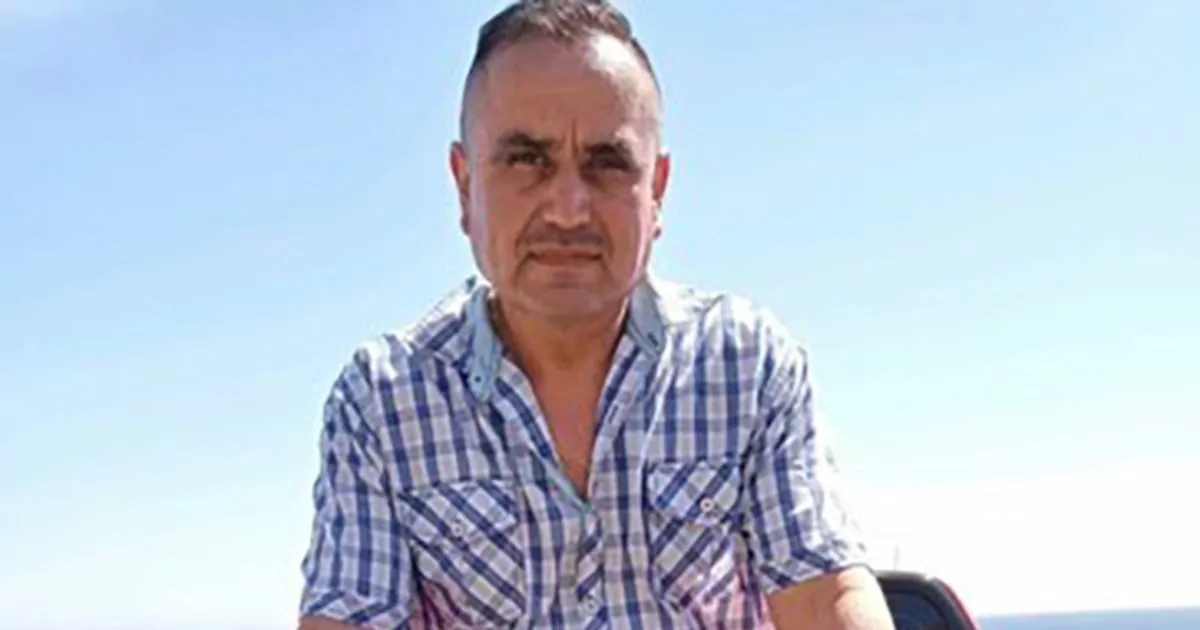
A cannabis farmworker, Jaime Alanis Garcia, who sustained critical injuries during a chaotic immigration raid by federal authorities in Southern California, has died, according to reports from his family. Garcia’s tragic death occurred on Saturday, just days after he fell approximately 30 feet during a raid at Glass House Farms located in Camarillo, California, roughly 50 miles northwest of downtown Los Angeles.
Garcia's family informed NBC Los Angeles that he suffered severe injuries, including a broken neck and skull from the fall. Shortly after the incident, he was placed on life support until his wife could arrive from Mexico to be with him during his final moments. “His wife and parents decided today to let him rest. He has passed away,” his niece stated in a heartfelt announcement on Saturday. His family also acknowledged to NBC that without the aid of an assistive breathing machine, Garcia likely would not have survived the days leading up to his passing.
Teresa Romero, president of the United Farm Workers (UFW), a labor union representing California farmworkers, expressed deep sorrow over Garcia's death. “Our hearts are heavy for the grieving family of Jaime Alanis, who died from injuries sustained during a chaotic raid on Thursday,” she stated. Romero emphasized that the organization would do everything possible to support Garcia’s grieving family during this difficult time.
The Department of Homeland Security (DHS) did not respond immediately to requests for comment regarding the incident. However, immigration officials stated on Friday that Garcia was not in federal custody at the time of his fall. DHS Assistant Secretary Tricia McLaughlin noted, “Although he was not being pursued by law enforcement, this individual climbed up to the roof of a greenhouse and fell 30 feet.” She added that Customs and Border Protection (CBP) called for a medivac to provide timely medical care.
The raid at Glass House Farms sparked significant unrest, leading to hundreds of demonstrators taking to the streets. Some protesters resorted to throwing rocks and bricks at the vehicles of federal agents. Homeland Security Secretary Kristi acknowledged the violent confrontations faced by immigration officers, which included assaults and gunfire. In response to the escalating violence, federal agents utilized less-lethal weapons and tear gas while making arrests inside the cannabis grow house.
Former President Donald Trump commented on the protests in a Truth Social post, expressing disbelief and urging immigration authorities to employ “whatever means is necessary” to detain individuals who do not comply with the law. The cannabis farm where Garcia worked was among two Glass House properties targeted during the operation, which resulted in the arrest of 319 undocumented migrants and the rescue of 14 children from potential forced labor and exploitation.
Romero highlighted the need for legal counsel for the rescued children to ensure their protection from further harm. She pointed out that farmworkers are often not safeguarded by existing child labor laws, which typically exempt them from such work. “Detaining and deporting children is not a solution,” she asserted, emphasizing the importance of protecting vulnerable populations.
The raids come in the wake of significant protests against similar operations in Los Angeles, which garnered national attention and led to the deployment of the National Guard by Trump to manage the unrest. In response to the recent events, Los Angeles Mayor Karen Bass signed a directive mandating city departments to prepare plans for potential encounters with federal immigration authorities.
Romero highlighted the detrimental effects of these federal actions on American communities, stating, “These violent and cruel federal actions terrorize American communities, disrupt the American food supply chain, threaten lives, and separate families.” She also praised a federal court's temporary restraining order against U.S. immigration enforcement in cases lacking reasonable suspicion and targeting individuals based on their appearance, occupation, or language proficiency.
This legal challenge was initiated by the UFW, the Coalition for Humane Immigrant Rights, the ACLU, and various civil rights organizations, with support from the state of California, the city of Los Angeles, and other jurisdictions. The situation surrounding Jaime Alanis Garcia serves as a poignant reminder of the complexities and human costs associated with immigration enforcement in the United States.